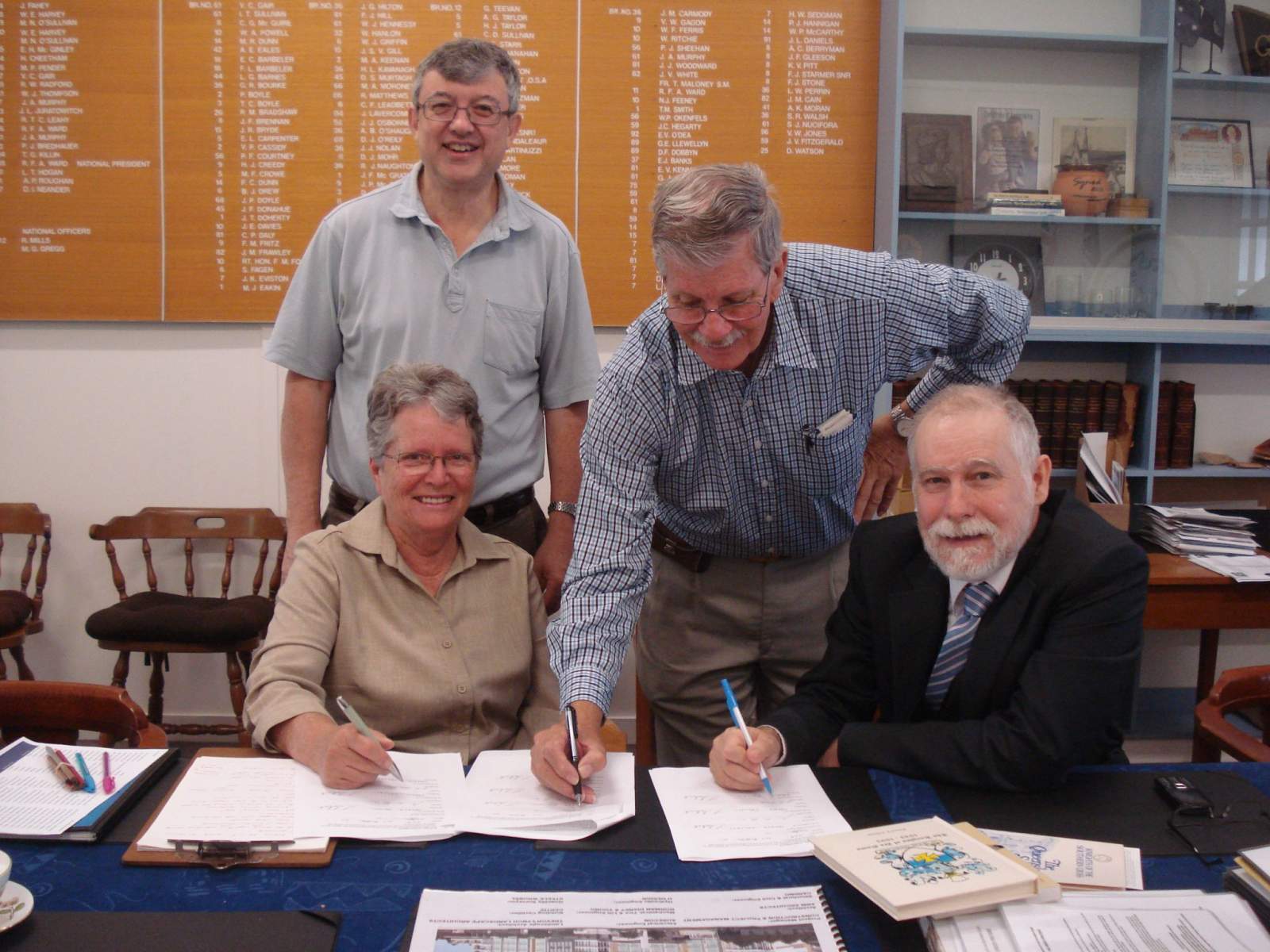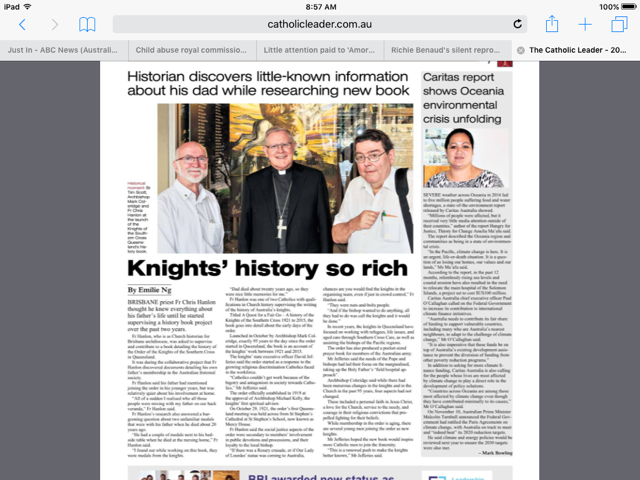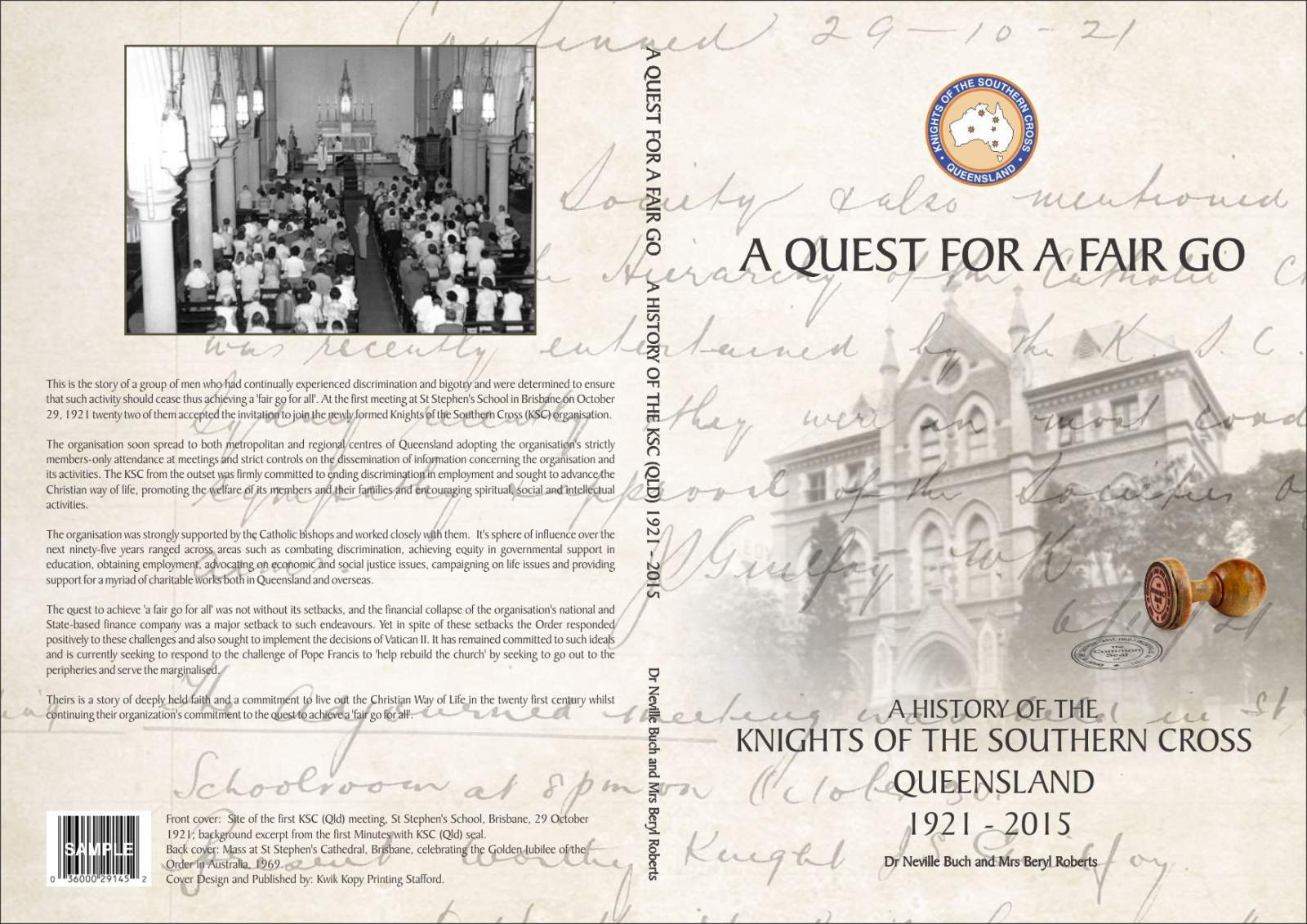A Fair Go for All: Writing Catholic History in Queensland for A New Era.
By Dr Neville Buch | 25/05/2017
A life journey, for many of us, has a strange way about it. It turns in funny directions. For a historian, who had a very Methodist upbringing, who travelled proudly into several types of the heresies unloved by Catholics (e.g. Unitarian-Universalism), and who ended up a philosophical critic of religious doctrine, I have written a sizable chunk of local Catholic history. I am the primary author of “A Quest for a Fair Go: A History of the Knights of the Southern Cross in Queensland”, launched in October by Archbishop Mark Coleridge. It was a team effort and I was joined in the effort by Mrs Beryl Roberts, a research assistant, and Rev. Dr. Chris Hanlon, the organising editor and mentor in the project. Father Hanlon wrote a few chapters in the book.
An American admiral, Bill Bullard, has been quoted as saying:
“Opinion is really the lowest form of human knowledge. It requires no accountability, no understanding. The highest form of knowledge… is empathy, for it requires us to suspend our egos and live in another’s world. It requires profound purpose larger than the self-kind of understanding.”
To this thought should be added the words from the better known Erich Fromm, in his book, ‘The Art of Loving’:
“The main condition for the achievement of love is the overcoming of one’s narcissism. …. The opposite pole to narcissism is objectivity; it is the faculty to see other people and things as they are, objectively, and to be able to separate this objective picture from a picture which is formed by one’s desires and fears.”
Here are two important concepts which I hold dear as a historian, empathy and objectivity. They are two ideas in tension, and are not easily obtained.
It has been my privilege to work with the Queensland Order of the Knights of Southern Cross to produce their wonderful history. The process has taught me well in empathy and objectivity, and it is what we have achieved together in this recorded history of Knights.
I particularly thank the KSC (Qld) History Committee for the great assistance and guidance, including editing and some of the writing, a heart-felt thanks to Brothers David and Michael, Maureen, and my old friend and fellow historian, your Father Chris.
I commend the book, not only for reading by the knights, but for all who wish to empathetically and objectively understand this important Catholic fraternity in the history of Queensland.




